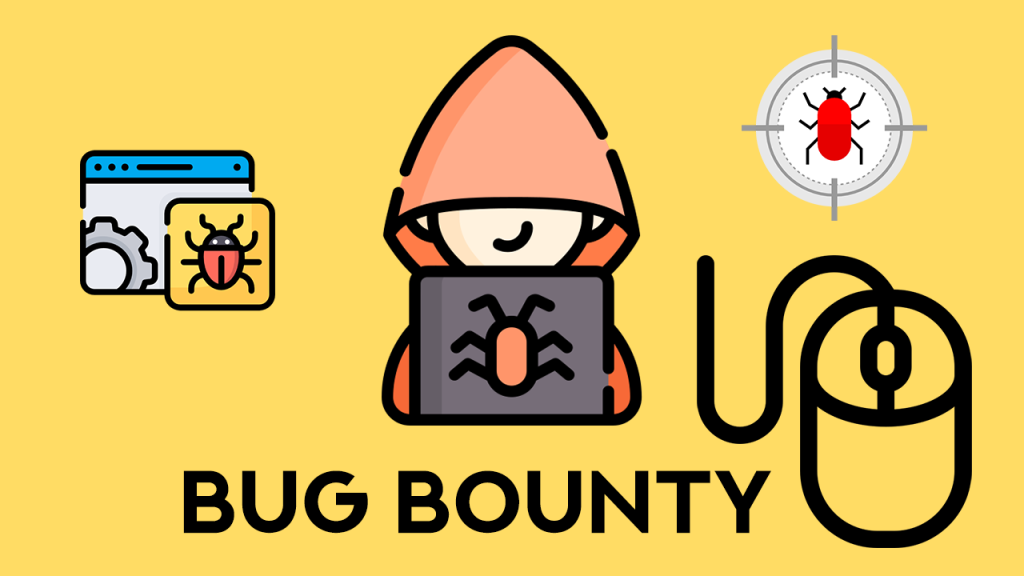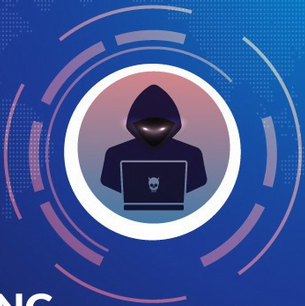BUG HUNTING

What is Bug Hunting?
Bug Hunting, in the context of Cybersecurity, refers to the process of actively searching for vulnerabilities in software applications, websites, and computer systems. The goal is to identify these weaknesses before malicious actors (black hats) can exploit them to steal data, disrupt operations, or gain unauthorized access.
Bug Hunting plays a vital role in improving the overall security of software and systems. By proactively finding and fixing vulnerabilities, bug hunters help to make the digital world a safer place.
Why it is important getting trained in Bug Hunting?
Career Opportunities:
- Ethical Hacker: Bug hunting training positions you for a career as an ethical hacker, using your skills to identify and report vulnerabilities before malicious actors exploit them. This is a rapidly growing field with high demand.
- Bug Bounty Programs: Many organizations offer bug bounty programs, rewarding individuals for finding and reporting vulnerabilities. Bug hunting training prepares you to participate in these programs and potentially earn significant income.
- Penetration Tester or Security Researcher: The skills learned in bug hunting training can be a stepping stone to careers in penetration testing or security research. These roles involve a broader range of security assessments but leverage similar vulnerability identification techniques.
Security Mindset and Contribution to the Community:
- Proactive Approach: Bug hunting fosters a proactive security mindset. You’ll learn to think like an attacker and identify vulnerabilities that could be exploited for malicious purposes. This allows you to contribute to a more secure digital environment.
- Responsible Disclosure: Bug hunting training emphasizes the importance of responsible disclosure, reporting vulnerabilities to software vendors in a way that allows them to fix the issue before it’s publicly known.
Technical Skills and Knowledge:
- Vulnerability Discovery Techniques: Training equips you with various techniques for discovering vulnerabilities in software, including code review, fuzzing, and social engineering.
- Security Tools and Automation: You’ll learn to use industry-standard tools for vulnerability scanning, exploitation, and automation of repetitive tasks, making your bug hunting process more efficient.
Beyond Technical Skills:
- Problem-Solving and Critical Thinking: Bug hunting requires strong problem-solving and critical thinking skills as you analyze code, identify vulnerabilities, and develop creative approaches to exploit them.
- Communication and Reporting: Effectively communicating your findings to software vendors is crucial. Training emphasizes clear and concise reporting, including technical details and potential security impacts.
- Adaptability and Continuous Learning: The world of software development is constantly evolving, and new vulnerabilities emerge frequently. Bug hunting training emphasizes staying updated on the latest trends and adapting your techniques accordingly.
Personal Satisfaction and Recognition:
- Challenge and Reward: Bug hunting can be a challenging and rewarding pursuit. Finding a critical vulnerability can lead to a significant bug bounty, recognition within the security community, and the satisfaction of contributing to a more secure software ecosystem.
In conclusion, bug hunting training offers a unique blend of career opportunities, technical skills development, and personal satisfaction. If you’re interested in cybersecurity and want to play a role in making software more secure, then bug hunting training is a strong step in the right direction.


Why it is important getting trained in Bug Hunting?
Career Opportunities:
- Ethical Hacker: Bug hunting training positions you for a career as an ethical hacker, using your skills to identify and report vulnerabilities before malicious actors exploit them. This is a rapidly growing field with high demand.
- Bug Bounty Programs: Many organizations offer bug bounty programs, rewarding individuals for finding and reporting vulnerabilities. Bug hunting training prepares you to participate in these programs and potentially earn significant income.
- Penetration Tester or Security Researcher: The skills learned in bug hunting training can be a stepping stone to careers in penetration testing or security research. These roles involve a broader range of security assessments but leverage similar vulnerability identification techniques.
Security Mindset and Contribution to the Community:
- Proactive Approach: Bug hunting fosters a proactive security mindset. You’ll learn to think like an attacker and identify vulnerabilities that could be exploited for malicious purposes. This allows you to contribute to a more secure digital environment.
- Responsible Disclosure: Bug hunting training emphasizes the importance of responsible disclosure, reporting vulnerabilities to software vendors in a way that allows them to fix the issue before it’s publicly known.
Technical Skills and Knowledge:
- Vulnerability Discovery Techniques: Training equips you with various techniques for discovering vulnerabilities in software, including code review, fuzzing, and social engineering.
- Security Tools and Automation: You’ll learn to use industry-standard tools for vulnerability scanning, exploitation, and automation of repetitive tasks, making your bug hunting process more efficient.
Beyond Technical Skills:
- Problem-Solving and Critical Thinking: Bug hunting requires strong problem-solving and critical thinking skills as you analyze code, identify vulnerabilities, and develop creative approaches to exploit them.
- Communication and Reporting: Effectively communicating your findings to software vendors is crucial. Training emphasizes clear and concise reporting, including technical details and potential security impacts.
- Adaptability and Continuous Learning: The world of software development is constantly evolving, and new vulnerabilities emerge frequently. Bug hunting training emphasizes staying updated on the latest trends and adapting your techniques accordingly.
Personal Satisfaction and Recognition:
- Challenge and Reward: Bug hunting can be a challenging and rewarding pursuit. Finding a critical vulnerability can lead to a significant bug bounty, recognition within the security community, and the satisfaction of contributing to a more secure software ecosystem.
In conclusion, bug hunting training offers a unique blend of career opportunities, technical skills development, and personal satisfaction. If you’re interested in cybersecurity and want to play a role in making software more secure, then bug hunting training is a strong step in the right direction.








